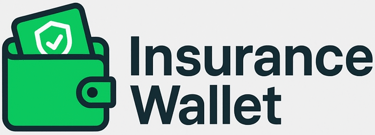🛡️ Why Insurance Covers Only Pure Risks
🌍 The Real Purpose of Insurance
At its heart, insurance isn’t about profit — it’s about protection.
It’s a promise that if something unexpected and harmful happens, you won’t have to face the full financial burden alone.
But not every kind of uncertainty qualifies for that promise.
Some risks can be insured. Others — especially those taken by choice — cannot.
This is why insurance covers only Pure Risks, not Speculative Risks. Let’s understand why that’s both logical and necessary.
🎯 What Makes a Pure Risk “Insurable”?
A Pure Risk is a situation where only two outcomes are possible:
✅ Either nothing happens, or
❌ A loss occurs.
There is no possibility of profit.
These events are accidental, unintended, and beyond one’s control.
Example:
A factory damaged by fire
A person hospitalized due to illness
A car accident on the road
These are not choices people make — they just happen.
That’s why it’s fair for people facing similar risks to pool their money (premium) and share losses when they occur.
👉 This pooling of similar risks is what makes insurance possible.
🚫 Why Speculative Risks Don’t Fit the Insurance Model
Speculative Risks involve an element of personal choice and the chance of gain or loss.
People take them willingly — for example:
Investing in stocks hoping for a profit
Starting a new business
Trading in currencies or commodities
Here’s why such risks are excluded from insurance coverage 👇
1️⃣ Because They Are Taken Voluntarily
Insurance exists to protect people from what they cannot control, not what they choose.
If someone takes a speculative risk willingly, they must also accept the outcome.
It would be unfair for others in the insurance pool to pay for a loss that was the result of someone’s personal decision.
2️⃣ Because There’s a Chance of Profit
Insurance works on the principle of sharing losses, not sharing profits.
If speculative risks were insured, everyone would want to share their losses but not their gains.
That would make the system unbalanced — and insurers would quickly go bankrupt.
3️⃣ Because They Are Hard to Predict
Insurance depends on data and probability.
For Pure Risks, insurers can study past records — like the number of accidents, fires, or hospitalizations — to estimate how often losses happen and how severe they might be.
Speculative Risks, on the other hand, depend on unpredictable factors — market movements, politics, consumer trends, or human behavior.
There’s no reliable way to calculate how often or how big the loss might be.
Without predictability, insurers cannot fix fair premiums.
4️⃣ Because They Encourage Recklessness (Moral Hazard)
If people knew that even their business losses or bad investments were covered by insurance, they might take bigger and riskier bets — because someone else (the insurer) would bear the loss.
That would defeat the purpose of insurance, which is meant to reduce risk-taking, not increase it.
5️⃣ Because It Would Make Insurance Too Expensive
Imagine if insurers had to cover every possible loss — from a company’s poor sales to a failed business idea.
The number of claims would explode, and so would premiums.
Most people wouldn’t be able to afford insurance at all.
By limiting coverage to Pure Risks, insurers keep the system affordable and sustainable.
💬 Real-Life Example
Let’s compare two situations:
Anita insures her shop against fire. One night, a short circuit causes a blaze and damages her stock. The insurer pays for her loss.
Ravi starts a new café. Business is slow, and he loses money. No insurance covers his loss.
Why?
👉 Anita’s loss was due to a Pure Risk — accidental and measurable.
👉 Ravi’s loss was a Speculative Risk — part of doing business.
Insurance exists for Anita’s situation, not Ravi’s.
✍️ Quick Recap
Insurance is designed to handle uncertainty, not experimentation.
It covers only Pure Risks — accidental and beyond control.
Speculative Risks are voluntary, unpredictable, and involve gain or loss — so they are excluded.
Limiting coverage to Pure Risks keeps insurance fair, practical, and affordable.
💡 Key Takeaways for Agents
✅ Explain clearly to clients: “Insurance protects you from accidents, not ambitions.”
✅ Remember this exam line:
“Insurance covers only Pure Risks because they are accidental, measurable, and predictable.”
✅ Use simple examples — a fire, a car accident, or a hospitalisation — to help clients relate.
✅ Reinforce the idea that insurance gives peace of mind, not profit.
